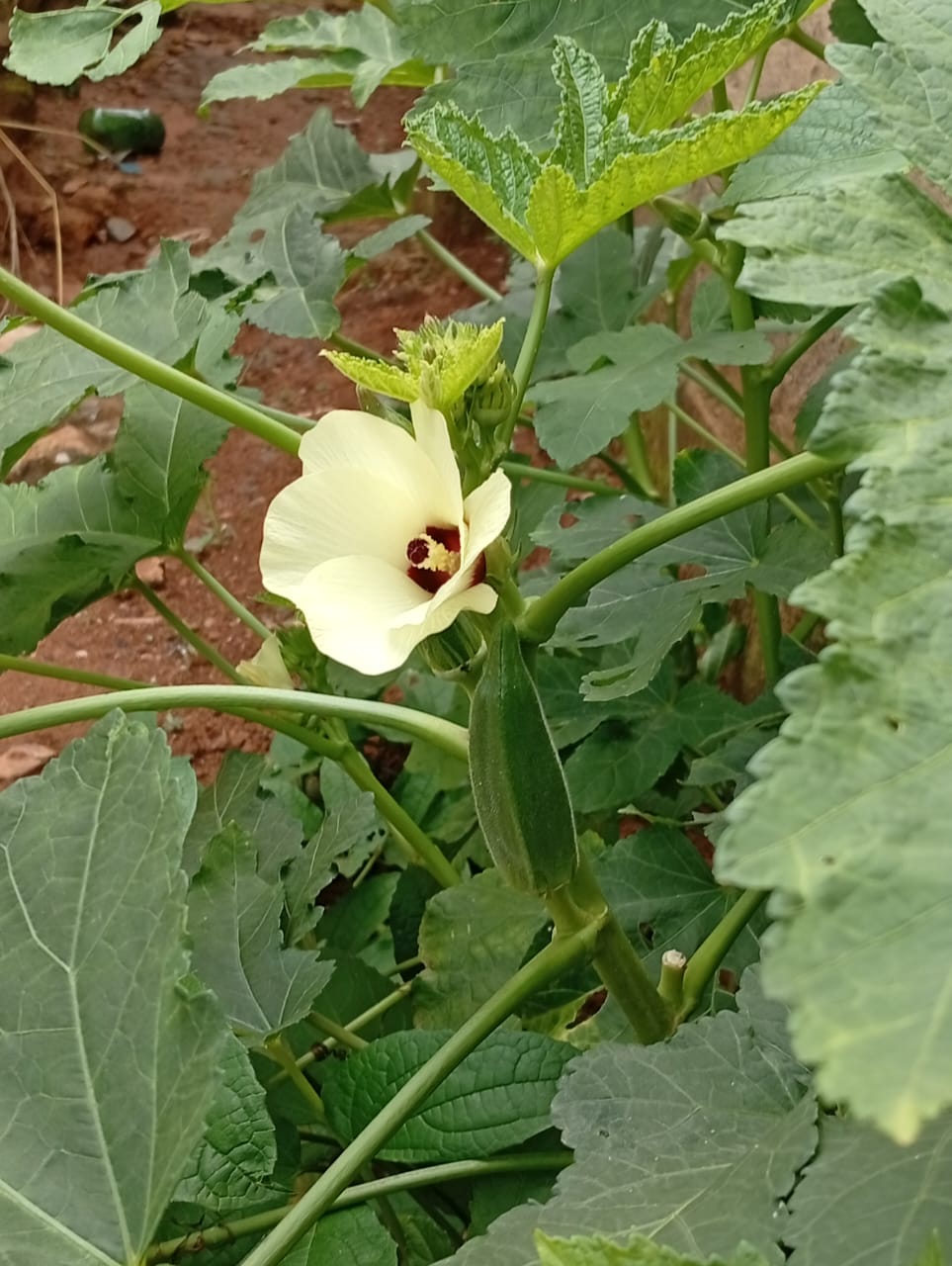Effects of Soil Amendment on Productivity of Okra (Abelmoschus esculentus (L) Moench) in an Ultisol of Southeastern Nigeria
DOI:
https://doi.org/10.70110/osse.v3i1.33Keywords:
Okra, Organic Matter, Soil Amendments, Soil Chemical Properties, UltisolAbstract
Background: Soil fertility management plays a vital role in determining okra yield in Nigeria. The majority of soils in southeastern Nigeria are primarily classified as ultisols. These soils tend to be acidic and deficient in nutrients, resulting in declining crop yield over time. A field experiment was carried out during the 2021 and 2022 cropping seasons at the National Horticultural Research Institute's Mbato Okigwe Sub-station, situated within the rainforest zone of Nigeria.
Aims: The study aimed to assess the impact of different organic fertilizer sources on the sustainable cultivation of okra in southeastern Nigeria.
Methods: The experiment was organized in a randomized complete block design and replicated three times. The treatments included four sources of organic fertilizers (poultry manure, goat manure, cow dung, and wood ash) and a control (no soil amendment). Data on growth and yield were collected from the okra plants and analyzed using analysis of variance.
Result: The results indicated a significant improvement in both soil fertility and okra yield. Notably, the application of poultry manure resulted in the highest organic matter content at harvest: 2.79% and 2.81% in the 2021 and 2022 cropping seasons, respectively. The use of wood ash led to a significant increase in soil pH. The control treatment, which did not receive any organic amendments, recorded the lowest levels of organic matter content, total nitrogen, and exchangeable bases. Poultry manure treatment produced a substantial okra fruit yield of 7.86 and 7.84 t/ha in the 2021 and 2022 cropping seasons, respectively, compared to only 2.31 and 2.28 t/ha observed in the control treatment.
Conclusion: Based on the study findings, the application of poultry manure was recommended to achieve higher okra yields. The study suggests that other organic fertilizer applications can be considered for sustainable soil management in southeastern Nigeria.
Downloads
References
Akata, O.R., Uko, A.E., Nwagwu, F.A., Ndaeyo, N.U., Ikeh, A.O. & Essang, D.M. (2016). Weed dynamics, growth and yield of cassava (Manihot esculenta Crantz) as influenced organic fertilizer sources and rates in an ultisol. Journal of Basic and Applied Research International, 18(2), 68-76.
Aliyu, U., Sukuani, M., Abubakar, L & Ahmed, H.G. (2015). Effect of organic fertilizer in growth and fresh fruit yield of okra (Abelmoschus esculentus (L.) Moench) in Sokoto, Nigeria. Equity Journal of Science and Technology, 3(2), 1-4.
Ekunwe P. A., Alufohai, G., & Adolue C. F. (2017). Economic viability of okra (Abelmoschus esculentus) production in Ika South and northeast local government areas of delta state, Internatinal Journal of Agriculture and Rural Development, 16(1), 1368-1371.
Idem, N. U. A., Ikeh, A. O. Asikpo, N. S. & Udoh, E. I. (2012). Effect of organic and inorganic fertilizer on growth and yield of fluted pumpkin (Telfaria occidentalis, Hook.F) in Uyo, Akwa Ibom State. Nigeria Journal of Agriculture and Social Research, 12 (2), 74-84.
Ikeh, A, O., Ndaeyo, N.U.& Ikeh, C.E. (2023c). Effects of integrated fertilization on soil sustainability and cassava (Manihot esculenta Crantz) yield in an ultisol. Journal of Current Opinion in Crop Science, 4(2), 89-102. https://doi.org/10.62773/jcocs.v4i2.197
Ikeh, A. O., Ndaeyo, N. U., Akpan, E. A., Uko, I. U. & Bassey D. E. (2013). Response of okra (Abelmoschus esculenta (L) Monch) cultivars to market refuse manure and NPK fertilizer rates in wetland dry season farming. In: Proceeding of First National Conference of the Crop Science Society of Nigeria (CSSN)-Nsukka, Pp 65-69.
Ikeh, A. O., Okocha, I. O., Umekwe, P. N., Amanze, A. N.& Ikeh, C. E. (2023b) Effect of foliar application of cow dung extract on growth and yield of waterleaf (Talinum triangulare Jacq.) in an ultisol. Journal of Current Opinion in Crop Science, 4(3), 103–111. https://doi.org/10.62773/jcocs.v4i3.203
Ikeh, A.O., Udoh, E.I. and Opara, A.C. (2019). Effect of mulching on weed, fruit yield and economic returns of garden egg (Solanum melongena) in Okigwe Southeastern Nigeria. Journal of Research in Weed Science, 2(1):52-64. https://doi.org/10.26655/jrweedsci.2019.1.5
Ikeh, A.O., J. O. Orji, J. O., Sampson, H. U.& Akata, O. R. (2023a). Effect of oil palm bunch refuse ash in sustainable production of egusi-melon (Colocynthis citrullus) in an ultisol. Asian Journal Agricultural and Horticultural Research, 10 (3) 138-148. https://doi.org/10.9734/AJAHR/2023/v10i324
Kota, A. K. R., Kerketta, A., Topno, S.E., Bahadur, V., & Tripathi, P. (2022). Effect of organic fertilizers on growth yield and quality of Okra (Abelmoschus esculentus L.) Kashi Lalima. The Pharma Innovation Journal,11(5) 2301-2304
Ndaeyo, N. U., Ikeh, A. O., Nkeme, K. K. Akpan E. A. and Udoh E. I. (2013). Growth and foliar yield of waterleaf (Talinum traingulare Jacq) to complementary application of organic and inorganic fertilizer in an ultisol. American Journal of Experimental Agriculture, 3 (2), 324-335 https://doi.org/10.9734/AJEA/2013/2599
NIHORT (2003). Nigerian Institute of Horticultural Research. Commercial Crop Production Guide Series in Nigeria, 8: 10.
Omololu, P.A., Omololu, V. O., Ogunrinde, B. A., Ogunrinde, A.T. & Onah, J.I. (2023). The effect of organic manure on growth and yield of okra (Abelmoschus esculentus L.). International Journal of Science and Research Archive, 10(01), 605–610, https://doi.org/10.30574/ijsra.2023.10.1.0784
Udoh, E. I. (2023). Effect of fertilization on economic production of Okra (Abelmoschus esculentus (L) Moench) in Uyo, Southeastern Nigeria. Journal of Current Opinion in Crop Science, 4(3), 112- 118.

Downloads
Published
How to Cite
Issue
Section
License
Copyright (c) 2025 Helen Udoma Sampson, Angus Onwudiwe Ikeh, Janeth Oliver Orji, Uko Idem Uko, Diana Adaobi Okparaiheoma, Chiamaka Gloria Akuwueze, Nkechinyere Kate Anonaba, Juliana Nkiru Okamigbo

This work is licensed under a Creative Commons Attribution-ShareAlike 4.0 International License.









